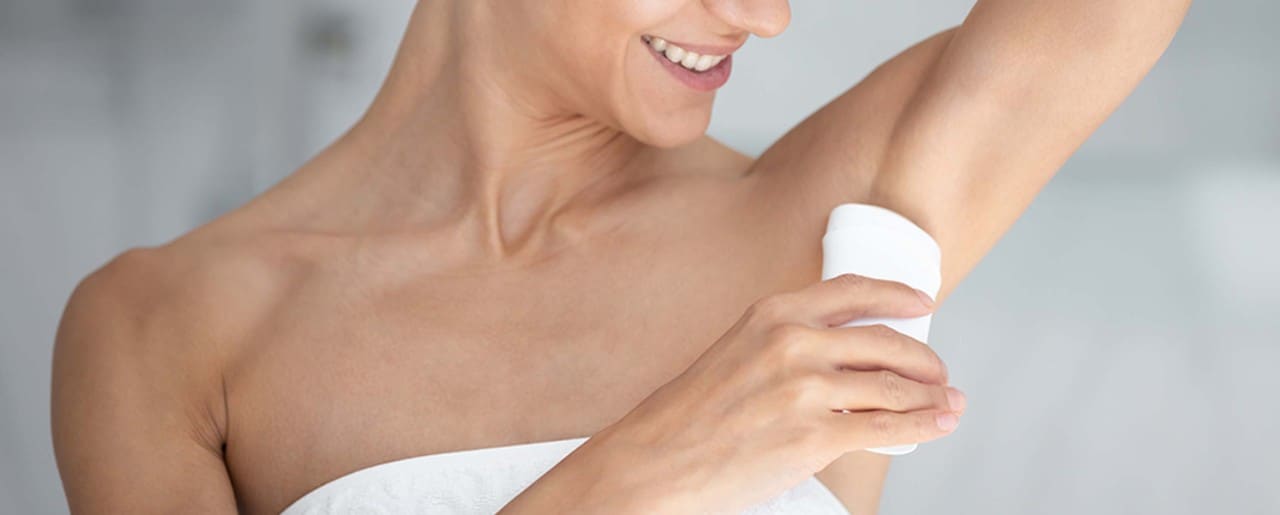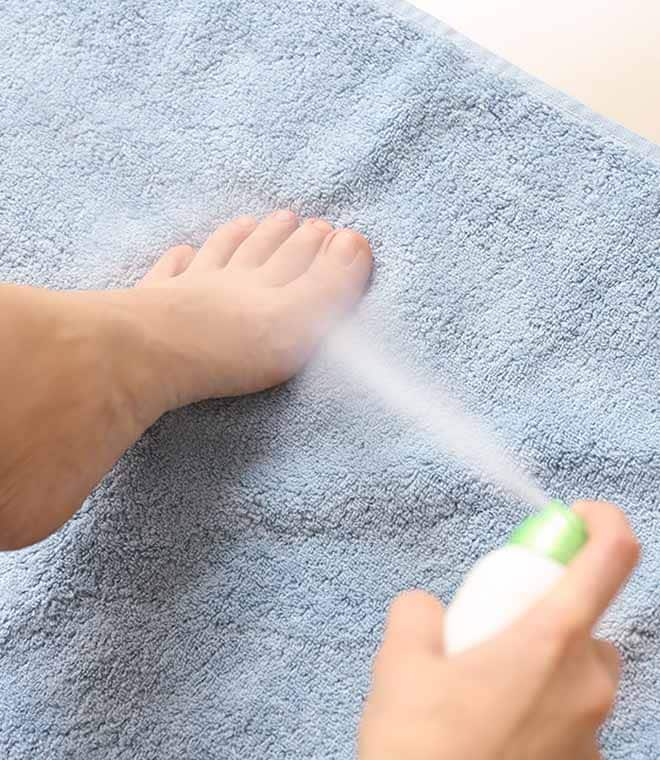Health
How to get rid of body odor
By Anna H. Chacon, MD, Fellow of the American Academy of Dermatology Sep 06, 2023 • 8 min
Body odor is a problem nearly everyone experiences from time to time. For some people, odors arise after exercise or on hot days, while for others, the problem is persistent and seemingly unrelated to their day-to-day routine. Whether you experience occasional or frequent body odor, there are steps you can take to address the issue so that you can feel fresher and more confident.
What causes body odor?
Most people associate body odor with sweat, but there’s a little more to the story. Perspiration is an important bodily function that helps regulate your body temperature. Almost all of your entire body is covered with glands that produce sweat, and there are other glands in areas like your groin and armpits that release a thicker form of perspiration. When you get hot, the sweat that comes from these glands evaporates, cooling off your body.
If you run your finger over a bead of fresh perspiration and smell it, you’ll notice that the moisture is odorless. What actually causes body odor is bacteria that thrive in moist environments, including areas where your sweat glands are located.
In some cases, infections and underlying medical conditions may also contribute to body odor.
What to do for body odor
Making changes to your habits and lifestyle can help reduce body odor. Follow these tips to help keep body odor at bay:
Revamp your diet
Certain foods can worsen body odor for some people. Consider keeping a food diary where you track what you eat and then rate your body odor on a scale from 1 to 10. Over time, you may discover a link between your diet and symptoms.
Some foods known to contribute to body odor include:
- Cruciferous vegetables: Cabbage, broccoli, cauliflower and other cruciferous veggies can produce gas, which may contribute to body odor.
- Garlic and onions: When your body breaks down these foods, it releases sulfur-like compounds that can cause an unpleasant smell.
- Seafood: People with trimethylaminuria (fish odor syndrome) may notice body odor after eating certain foods, like eggs, liver, some types of fish and legumes.
Bathe regularly
Showering or taking a bath on a regular daily basis and thoroughly cleansing with body wash or bar soap can go a long way toward reducing body odors. Not everyone needs to bathe every day. Be sure to shower or bathe after you exercise and after spending time outside on a hot day to eliminate sweat.
Apply underarm protection
Products for underarms can help keep body odor at bay. There are three main types of products:
- Deodorants: These products often contain ingredients that fight the bacteria that lead to odors. Some products also mask odors with fragrance.
- Antiperspirants: These formulas reduce the amount of sweat that your glands release, often using aluminum-based compounds.
- Combination formulas: Some products combine deodorant and antiperspirant ingredients to combat bacteria and reduce the amount of sweat your glands produce.
When shopping for underarm protection, you can choose from a variety of forms, including solids, gels, roll-ons, wipes and sprays. Choose the type that is most appropriate for you.
If over-the-counter deodorants and antiperspirants don’t prevent body odor, your healthcare provider can prescribe a stronger product.
Rethink your wardrobe
What you wear during the day can have an impact on how you smell. Breathable fabrics, like cotton, wool and silk, help sweat evaporate to reduce odors and support drier skin.
For workouts, you may wish to wear clothing with moisture-wicking fabrics. This type of material quickly absorbs perspiration to help you feel drier.
Consider hair removal
Shaving your underarms may help minimize body odors. Underarm hair can slow down the evaporation process, allowing moisture to linger longer, giving bacteria more time to grow.
Treat underlying conditions
When an underlying medical condition or infection is the cause of body odor, treatment is an important part of addressing the problem. If medication is causing a troublesome body odor, your healthcare provider may be able to prescribe a different drug.
What disease can cause body odor?
An uncommon genetic condition known as trimethylaminuria can cause a fishy body odor as well as foul-smelling urine and breath. It occurs when the body can’t properly process a compound called trimethylamine in food.
Some medical conditions can cause excessive sweating (hyperhidrosis), which can lead to body odor. These include:
- Primary focal hyperhidrosis: With this condition, the body produces too much sweat. Most people develop primary focal hyperhidrosis before age 25, and it tends to run in families.
- Diabetes: People with diabetes may sweat excessively after eating.
- Thyroid disease: Hormonal imbalances caused by thyroid disease can increase sweating.
- Nervous system disorders: When the nerves that control the sweat glands don’t work properly, excessive perspiration may occur.
Certain medications can also cause someone to sweat more than usual. Drugs used to treat diabetes and Parkinson’s disease are common culprits, as is the over-the-counter pain reliever naproxen. Some supplements taken in very high doses may also change someone’s body odor.
Menopause can also be a contributing factor for body odor. Women who experience night sweats and heavy sweating due to hot flashes may be more prone to odors.
Explore treatments with your healthcare provider
There are many treatments available for body odor and excessive sweating if that’s the cause. Treatments include:
- Prescription topicals, such as aluminum chloride gel
- Oral medications, such as anticholinergic agents
- Treatments, such as Botox injections and microwave therapy, performed in a healthcare provider’s office
If you’re concerned about excessive sweating, talk to your healthcare provider about your symptoms. You should also let them know if you experience a body odor change, such as a new or more intense smell. They can conduct an examination and order tests as needed to rule out any underlying medical conditions. Once your healthcare provider makes a diagnosis, you can explore treatment options together and create a plan for addressing body odor.
Published September 2023.
Sources:
- https://my.clevelandclinic.org/health/diseases/17113-hyperhidrosis
- https://www.mayoclinic.org/diseases-conditions/hyperhidrosis/symptoms-causes/syc-20367152
- https://medlineplus.gov/genetics/condition/trimethylaminuria/#references
- https://www.health.harvard.edu/staying-healthy/whats-that-smell-common-and-less-common-causes-of-body-odor
- https://www.ncbi.nlm.nih.gov/books/NBK482278/
- https://my.clevelandclinic.org/health/symptoms/17865-body-odor
- https://www.aad.org/public/diseases/a-z/hyperhidrosis-causes




